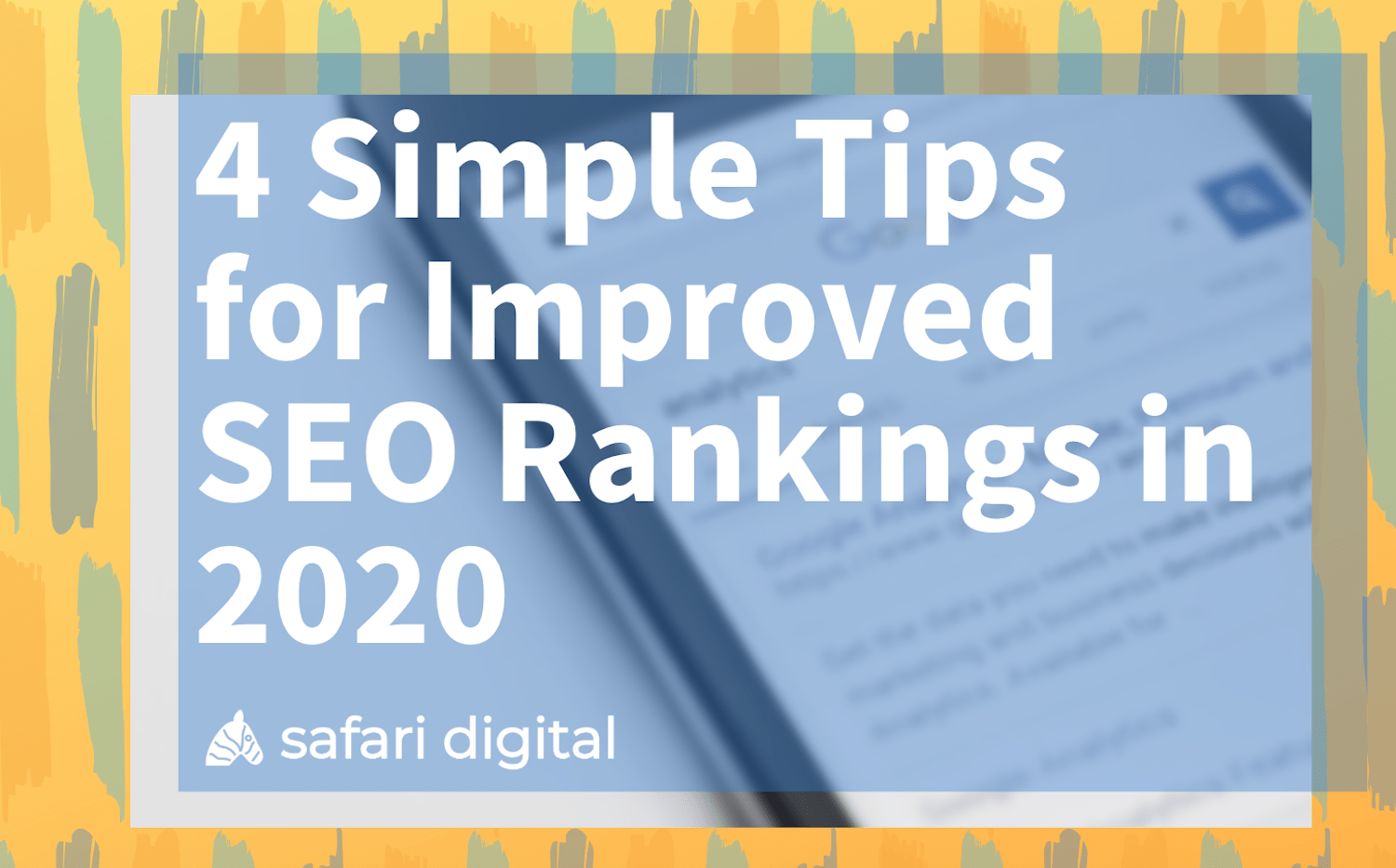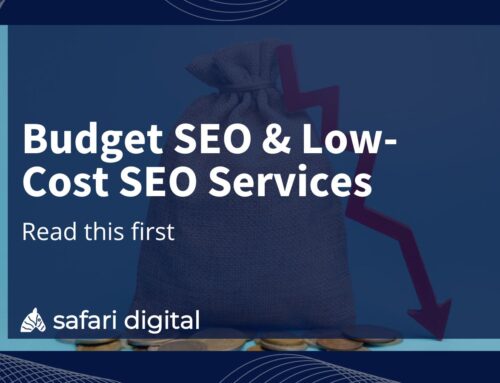
SEO is arguably the most changeable aspect of digital marketing. Speak to any search engine optimisation professional and they will tell you that many of the most effective strategies from 2010 or even 2017 are now redundant. In a landscape that is so changeable, how do you stay on top?
Google is constantly changing the way that they understand, interpret, and value content. As such, it’s almost impossible for digital marketers and developed to keep up to date with the latest changes — before they’ve been affected by them. To make life a little easier, here are some of the most useful tips for staying ahead of the ranking algorithmn for improved SEO rankings in 2020.
1. Prioritise Site Speed for Better SEO Rankings
It goes without saying — site speed matters. Google have been using site speed as a ranking factor in their search algorithm for the last decade. Ever since announcing that site speed would be considered a ranking factor back in 2009, Google have continued to lament its importance to webmasters.
The reason that Google places such a large emphasis on site speed can be categorised into two key areas.
- Site speed affects the user experience.
- Site speed impacts the number of pages that search bots can crawl using their allocated crawl budget.
Google’s primary objective is to deliver the best experience to its users. A slow website will hinder this core mission, and, as such, slow websites will be punished with lower rankings and reduced organic visibility.
Think about all those times you have exited your search browser because a website is taking too long to load. Each time a user closes their search browser after a single visit or a short amount of time, Google places a little red mark against the site that caused the user to bounce. To make sure that users are getting the best possible experience, Google will reward and punish sites that retain user attention with higher or lower SERP rankings.
2. Focus on User Engagement Metrics
User engagement is the key to maintaining (and excelling) your place in the search engine results pages. From Google’s perspective, the longer that a user spends on your website and the more pages they visit, the greater value your website is providing to that user. Google uses a number of engagement and retention metrics to help them determine whether your website should be shown to more (or fewer) visitors. Two key metrics that are used to determine engagement are:
- Bounce Rate: Is a user visiting a single page and then leaving, or are they sifting through multiple pages on your website.
- Time on page: How long a visitor spends on your website can be directly correlated to the value of information that is being delivered.
Websites that excel at the above metrics are viewed favourably by Google and other search engines. If users are spending a long time on a website that they have accessed through an organic search, search engines interpret that as a strong relevancy signal. Google wants to match users with websites that satisfy their search enquiry – websites that retain engagement are rewarded with higher SEO rankings than those who do not. When a new page is indexed, search rankings will fluctuate for a period as Google ‘tests’ the relevancy of a page by showing it to users. Pages that record a high bounce rate and low time on page will be given lower rankings than those that retain a high number of users.
3. Quality Content Matters for SEO Rankings
Content plays a critical role in the way that your website appears and ranks in the search engine results pages. Digital marketers need to focus their efforts on creating content that people genuinely want to read, and then think about how they can optimise it for search engines. Content needs to provide value to the reader, so don’t go overboard with optimising your content for search engine robots, instead, concentrate on creating interesting, well-structured content that is ample length.
Matt Cutts from Google states that it is important that you find a balance between writing content for people and writing content for Google.
Content creators should focus on creating articles that are interesting and engaging, once you have done that, then you can think about how you can optimise it for search engines. Google is able to determine the quality of content being delivered through their user experience metrics. Websites that are able to engage (time on page) and retain (low bounce rate) their users are ultimately the ones who will be favoured by Google.
4. Create Link Worthy Content
Backlinks continue to play an enormous role in the way that Google perceives the value of a website and content. In fact, Google have been using backlinks as a ranking signal since 1996 when Sergey Brin and Larry page created the notion of ‘page rank’ as a way of measuring the ranking potential of a webpage.
A study released by SEO Moz in 2017 suggests that backlinks still account for more than 50% of the way that websites appear in search engines.
The easiest (and most effective) way to build links at a large scale for enterprise level SEO projects is to create engaging, relevant, well-researched content. Shareable content can be broken down into three key areas:
- Educational Content
- Information Rich Content
- Entertaining Content
Before creating new content, think about which of the above three categories it is going to fall into. It’s imperative that you have a clear idea of who you want to share your content and tailor it towards them.
Final Thoughts
Learning and mastering search engine optimisation takes a considerable amount of time and effort. SEO is a highly specialised field that is fiercely contested by individuals and businesses looking for a scalable and cost-effective way to increase the quality and quantity of inbound leads. Investing time and money into developing a sustainable SEO strategy is a highly effective way to build your business into the future.






